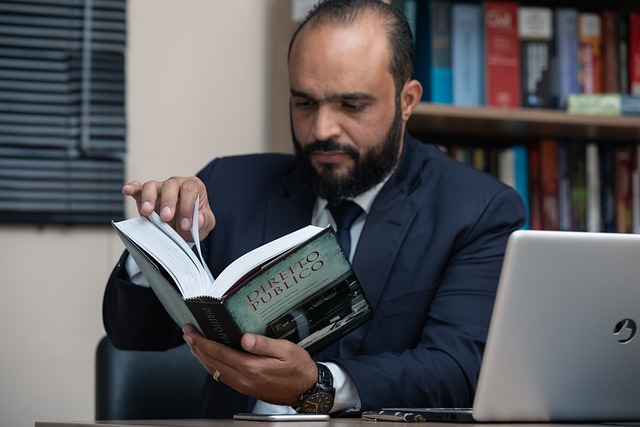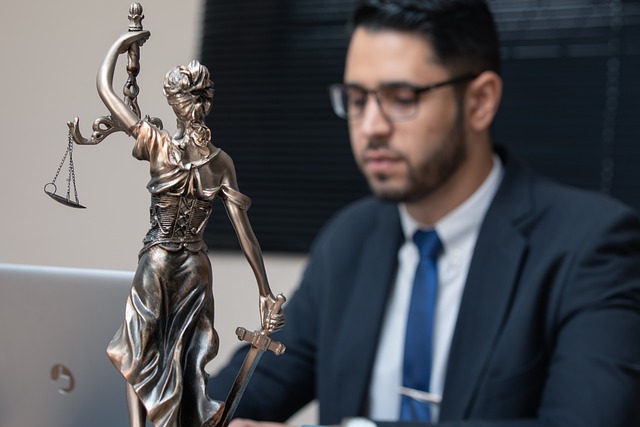Spinal Cord Injury Attorneys are crucial advocates for victims of negligence or accident-induced spinal cord injuries, offering legal expertise and strategic guidance. They navigate complex personal injury laws, collect robust evidence, and negotiate with insurance companies to secure compensation covering medical bills, rehabilitation costs, lost wages, and pain and suffering. These attorneys provide holistic support, guiding clients through legal and rehabilitation processes, ensuring access to quality healthcare, and advocating for their well-being. Their primary goal is to protect the rights of spinal cord injury victims and achieve justice.
“Seeking justice and compensation after a spinal cord injury? Understanding your legal options is crucial. This comprehensive guide introduces you to the vital role of a Spinal Cord Injury Attorney in navigating complex cases. From recognizing the types and causes of such injuries to mastering evidence collection and courtroom strategies, this article equips you with knowledge. Learn how attorneys advocate for victims’ rights, ensuring they receive fair compensation. Discover the steps towards building a strong case, post-injury support, and the art of legal representation that can transform lives.”
- Understanding Spinal Cord Injuries: Types and Causes
- The Role of a Spinal Cord Injury Attorney
- Legal Rights and Compensation for Victims
- Building a Strong Case: Evidence and Testimonies
- Negotiation, Mediation, and Courtroom Representation
- Supporting Clients Beyond Legal Proceedings
Understanding Spinal Cord Injuries: Types and Causes

Spinal cord injuries can have devastating consequences, which is why a Spinal Cord Injury Attorney is crucial for those affected. Understanding these injuries involves recognizing their diverse types and varied causes. Spinal cord damage can result from various incidents, such as car accidents, slips and falls, or medical malpractice. The most common types include traumatic injuries from physical trauma, like fractures or dislocations, and non-traumatic injuries caused by conditions like tumours, infections, or bleeding.
Each type carries its own set of challenges and symptoms. Traumatic injuries might lead to temporary or permanent paralysis below the affected area, while non-traumatic injuries can cause sensory or motor impairments. Prompt medical attention is vital for managing these situations. A Spinal Cord Injury Attorney can help navigate legal complexities and secure compensation to support victims’ recovery and rehabilitation.
The Role of a Spinal Cord Injury Attorney

When someone suffers from a spinal cord injury, often due to negligence or an accident, the impact can be life-altering. This is where a Spinal Cord Injury Attorney steps in as an advocate for the victim’s rights and well-being. Their primary role is to ensure that the injured party receives fair compensation and access to quality medical care.
These legal professionals possess extensive knowledge of personal injury laws, including those specific to spinal cord injuries. They guide clients through complex legal processes, helping them understand their options and entitlements. Additionally, Spinal Cord Injury Attorneys play a crucial role in negotiating with insurance companies, ensuring that their clients receive the maximum settlement possible. Their expertise can navigate the intricate medical aspects of these cases, translating technical details into actionable legal strategies.
Legal Rights and Compensation for Victims

When a spinal cord injury occurs due to someone else’s negligence or intentional act, victims have legal rights and are entitled to seek compensation for their damages. A Spinal Cord Injury Attorney is crucial in navigating this complex process, ensuring that victims receive fair and just reparation for their injuries. These attorneys specialize in personal injury law and possess in-depth knowledge of the legal systems related to spinal cord injuries.
Compensation can cover a wide range of expenses, including medical bills, rehabilitation costs, lost wages, pain and suffering, and more. A qualified attorney will help victims understand their entitlements and guide them through the legal procedures to secure the compensation they deserve. This support is vital for individuals who often face significant physical, emotional, and financial challenges after such an injury.
Building a Strong Case: Evidence and Testimonies

Building a strong case for compensation after a spinal cord injury requires meticulous attention to detail and the accumulation of compelling evidence. A Spinal Cord Injury Attorney plays a pivotal role in this process, guiding clients through every step. They start by gathering medical records, which serve as the backbone of the case, detailing the extent of the injury and its impact on the victim’s life. Testimonies from medical professionals, witnesses, and the injured party themselves are also crucial, providing insights into the circumstances leading to the injury and its subsequent effects.
Photographs, videos, and expert opinions further strengthen the narrative, portraying a clear picture of the incident and its consequences. These elements collectively help in quantifying damages, which may include medical bills, rehabilitation costs, lost wages, and pain and suffering. A skilled attorney knows how to present this evidence persuasively to secure the best possible outcome for their client.
Negotiation, Mediation, and Courtroom Representation

When navigating complex legal matters related to a spinal cord injury, having an experienced attorney by your side is invaluable. A Spinal Cord Injury Attorney plays a pivotal role in advocating for individuals who have suffered such traumatic injuries. Their expertise extends beyond legal knowledge; they guide clients through intricate processes like negotiation and mediation. Through strategic negotiations, these attorneys aim to secure fair compensation without the need for prolonged litigation.
Mediation, another crucial aspect, offers a more collaborative approach where the attorney represents their client’s interests while fostering dialogue with all parties involved. Should alternative methods fail, a Spinal Cord Injury Attorney becomes an adept courtroom representative, skillfully presenting evidence and arguing on behalf of their client to achieve justice. Their goal is always to protect the rights and ensure the best possible outcome for clients suffering from these life-altering injuries.
Supporting Clients Beyond Legal Proceedings

When individuals suffer from a spinal cord injury, they often face immense physical and emotional challenges that can drastically alter their lives. A Spinal Cord Injury Attorney plays a pivotal role in supporting clients not just within legal proceedings but also throughout their journey towards recovery and rehabilitation. Beyond ensuring justice and compensation, these attorneys provide crucial guidance on navigating complex medical systems, assisting with accessing quality healthcare, and advocating for the resources necessary to enhance post-injury quality of life.
They help clients understand their rights and connect them with specialized care teams that include physical therapists, occupational therapists, and neurologists. This holistic approach ensures that individuals impacted by spinal cord injuries receive comprehensive support tailored to their unique needs. Ultimately, a dedicated Spinal Cord Injury Attorney fights not only for the legal outcomes but also for the well-being and long-term prospects of their clients, fostering a sense of hope and empowerment during this challenging period.
When facing the challenges of a spinal cord injury, turning to a dedicated Spinal Cord Injury Attorney is crucial. These legal professionals not only navigate complex legal systems but also advocate for your rights and pursue fair compensation. With their expertise in understanding various types of injuries and causes, they build compelling cases centered around evidence and testimonies. From negotiation to courtroom representation, they ensure you receive the support needed beyond legal proceedings, empowering you to focus on recovery and rebuilding your life.
